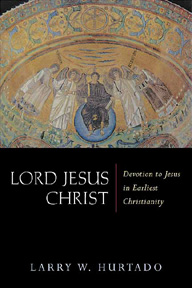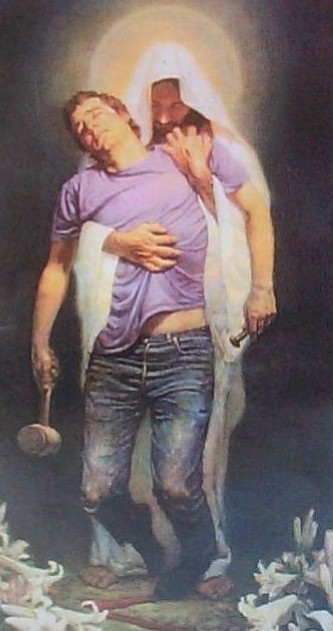Wright is a heretic. A heresiarch. He will forever burn under God's righteous wrath and under the solemn and scornful gaze of the Lamb of God for all eternity if he does not change his theological views before he dies, or rather, his lack of good theology! He is a false teacher, and one of the most influential heretics of the century because he affected people at the seminary level - where pastors are trained and scholars born - and has infected a good number of churches, right down to the layman and youth of the day.
Well, what can I say:
First, I have long been cheesed off with how some of Wright’s critics speak about him. Actually, by the time I read McMahon’s ad hominem rantings I’d finished the cheese and moved onto the wine and crackers; and at the moment I’m in a cab with Ben Myers and Chris Tilling and we’re off to the Pink Pussy Cat to have a light drink (notice the inter-textual echoes of Blackadder series 4). I never ceased to be amazed at how many of those who purport to love the doctrines of grace seem to demonstrate so little grace in their character and conduct towards others.
Second, I’ve posted on several occasions about Wright and the NPP, see the my posts Musings on the New Perspective and Paul and Judaism. I also recommend Doug Green’s sober comments about Wright for a similar evaluation.
Third, several opponents of Wright read a few lines out of WSPRS (which is both his best and worst volume) and take him to task over that. This ignores the fact that Wright has made some effort to qualify his views in subsequent works (see especially his articles on Justification on the NT Wright Page). To prove that I’m no sycophant I’ve put my criticisms of Wright in print (CTR and forthcoming in TynBul), but as a critic I still think one can admire several facets of his studies and enjoy his writings.
Fourth, when people tell me that Wright denies the reformed doctrine of justification, I often ask them “which one?”. There was a diversity of views about justification among the Reformers and Puritans!!! Compare the Augsburg and Westminster Confessions or even Richard Baxter and John Owen, they do not say the exact same thing. Martin Bucer held to a “double justification”! Go figure that one out.
Fifth, of all the theological and moral villainies in this world, why does Wright get so much attention? I find that religious pluralism and world poverty are far more worthy foes with which to battle over.
Sixth, whatever his failings, Wright is an interpreter for the Reformed tradition and his scholarship is stimulating and rewarding for those of us who read it. He belongs in the Reformed camp (although many of us will not always like the camping gear he brings with him). As far as Reformed Theologians go, many went to Philadelphia to sit at the feet of Cornelius Van Til; and behold, one greater than Van Til is here!














